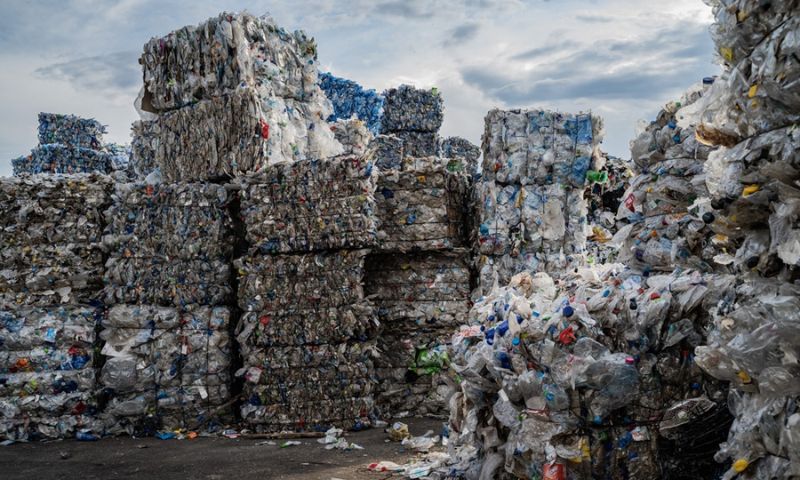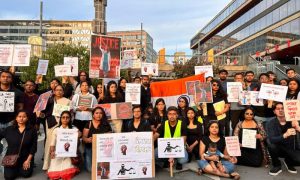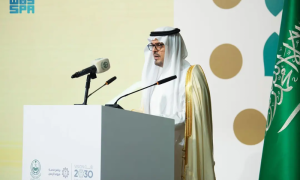PARIS: After five days of intense negotiations, representatives from 175 nations gathered in Paris have agreed to complete the first draft of an international treaty aimed at combating plastic pollution by the end of November.
The assembly’s negotiating committee called for the preparation of a “zero-draft text” of a legally binding instrument, with the goal of finalizing the treaty in 2024 during a third round of talks in Nairobi.
The decision was reached following a last-minute meeting led by France and Brazil and was subsequently adopted by the full plenary at UNESCO’s Paris headquarters. Gustavo Meza-Cuadra Velasquez, Chair of the forum’s Intergovernmental Negotiating Committee, announced the decision, which concluded a series of discussions marked by meticulous attention to detail and delaying tactics from some countries.
France’s Minister for Ecological Transition, Christophe Bechu, acknowledged the frustrations that arose during the initial two days of talks, as procedural rules took precedence. Certain countries, including major plastics producers Saudi Arabia, China, and India, resisted the idea of reaching a decision through a vote rather than consensus.
UN, Plastic, Pollution, United Nations, France, Paris, UNESCO, Saudi Arabia, China, India, Talks, Economic, Environmental
Concerns over plastic pollution have been mounting as microplastics have been discovered in diverse locations, ranging from the highest mountains to the deepest oceans, as well as within the bodies of sea birds, humans, and even placentas. Plastic waste also contributes to global warming, accounting for 3.4 percent of global emissions in 2019, according to the Organisation for Economic Cooperation and Development (OECD).
Current projections estimate that the annual production of fossil-fuel-based plastics will nearly triple to 1.2 billion tonnes by 2060, while waste will exceed one billion tonnes. With less than 10 percent of plastics currently recycled and over a fifth illegally dumped or burned, environmental groups are urging the treaty to address not only recycling and pollution but also the scale of plastic production itself.
Li Shuo of Greenpeace emphasized the urgent need for an international plastic treaty that regulates production and tackles pollution at its source. He noted similarities between the dynamics of plastic negotiations and international climate talks, where major producer countries tend to be on the defensive. Producers, he said, want to focus on pollution management rather than reducing plastic production.






















